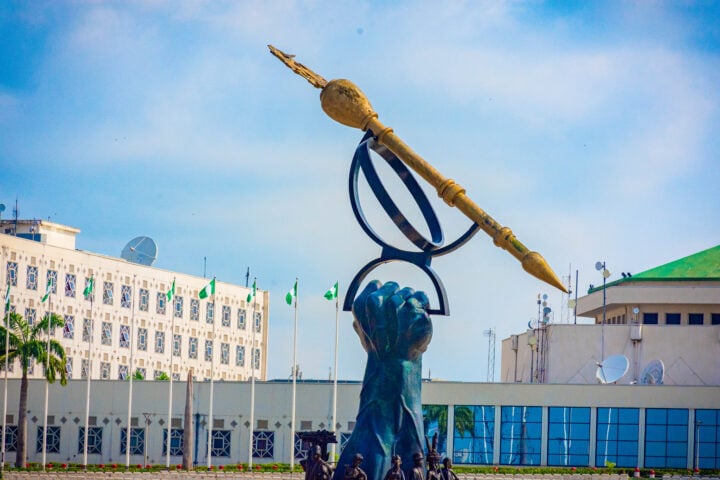BY JUDE NNODUM, JNR.
Bayshore Technologies Ltd (Bayshore) and Green Fuels Ltd (Green Fuels) submitted their dispute arising from the supply of compressed natural gas under a gas sales and purchase agreement to arbitration under the Arbitration and Mediation Act 2023 (AMA).
During the proceedings, the arbitral tribunal issued a procedural order, refusing Bayshore’s application for Green Fuels to produce certain documents. Dissatisfied, Bayshore relied on sections 30 and 55 of the AMA to apply to the Federal High Court to set aside the tribunal’s decision for violating its right to a fair hearing by refusing its application for document production. The Federal High Court upheld Bayshore’s application and set aside the tribunal’s decision.
The court’s decision may have wide implications on arbitration practice in Nigeria, particularly as regards the extent to which Nigerian courts can interfere or intervene in an arbitral tribunal’s interlocutory decisions and the basis upon which such intervention can be invoked by parties to the arbitral proceeding. It is for this reason that this note analyses the issues determined by the Federal High Court in arriving at its decision: the concept of equal treatment and the nature of an arbitral tribunal’s procedural order. The note’s final remarks are in the conclusion.
THE CONCEPT OF EQUAL TREATMENT
Being an alternative means of resolving disputes between parties, arbitral proceedings are required to adhere to the principles of fair hearing as set out in section 36 of the 1999 Constitution, as amended. This includes ensuring that, in determining any dispute, parties are allowed to present their respective cases before the arbitral tribunal. Section 30 of the AMA mandates arbitral tribunals to ensure equal treatment of parties. It provides that ‘each party is given a reasonable opportunity of presenting its case’ and ‘accorded fair resolution of the dispute without unnecessary delay or expense’.
Advertisement
An issue that was the focus of the court’s decision was whether the tribunal had accorded the parties equal treatment. And by the court’s decision, the tribunal had not. This is on the premise that the tribunal had granted the respondent a previous but similar request, which it refused the applicant. Accordingly, having granted the respondent’s request earlier, the tribunal ought to have granted the applicant’s request—this, for the court, constituted equal treatment, and the failure to grant the applicant’s request meant that the tribunal did not accord the parties equal treatment.
As noted earlier, the AMA requires that each party is given the opportunity to present its case. And in the context of equal treatment, it means providing parties equal procedural opportunity: that they are allowed to take such procedural steps, which include making applications, in presenting their respective cases. But it does not mean that giving parties similar opportunities—in this case, allowing each party to request that the other produce certain documents—will guarantee similar results. Simply put, equal treatment does not equate to a similar procedural outcome.
It, then, may be misconceived to consider that the opportunity given to parties in an arbitration to make similar requests—for instance, for document production from the other—ought to yield a uniform outcome. If granting an application depends on the discretion of the arbitral tribunal, it is reasonable that the surrounding facts and circumstances should be relevant in arriving at a decision. By this, each application, irrespective of the similarity, depends on its peculiar facts and circumstances. And to expect that the request for document production by a party will be granted as of right not only attempts to strip away the tribunal’s inherent discretion conferred by section 31(3) of the AMA but may also undermine the arbitral process.
Advertisement
Considering the above, it should not be considered that the guarantee of equal treatment of parties in an arbitration mandated by the AMA has been violated simply because an arbitral tribunal, in its discretion, has refused a party’s application or request, which it had granted the other party. Holding otherwise is contrary to the AMA on two grounds: first, it does not represent the AMA’s position, since equal opportunity cannot reasonably be considered to mean similar outcome; second, it impinges on the discretion which the AMA has explicitly conferred on arbitral tribunals.
PROCEDURAL ORDER
Generally, the position of the law is that Nigerian courts have a limited scope of interfering with or intervening in an arbitral proceeding, including its outcome—the arbitral award. This not only indicates Nigeria’s pro-arbitration stance but also relates to the position that parties to an arbitration are bound by their choices regarding the arbitrator(s) and the award rendered after the arbitral proceedings. In such cases, the courts will only intervene in the arbitration process under specific circumstances, as provided by law. And the intervention must relate to the tribunal’s award. This issue is relevant here, considering how the court characterised the tribunal’s procedural order.
In the case under review, the court characterised the tribunal’s decision as an interim award. And with such characterisation, the court intervened in the arbitral proceedings. The basis of the court’s characterisation is that the tribunal’s procedural order, which refused the application for document production, had a broader effect on the applicant’s case, and thereby rose to the status of an award. Considering this, the issue to be resolved in the succeeding paragraphs is whether the tribunal’s decision, made during the arbitral proceeding, can be considered an award to be subject to the court’s intervention.
Two cases from the United Kingdom may assist in resolving this question, considering the dearth of Nigerian case law on the subject. In ZCCM Investment Holdings Plc v Kanasanshi Holdings Plc [2019] EWHC 1285 (Comm), the arbitral tribunal had refused ZCCM Investment Holdings Plc (ZCCM) permission to institute a derivative claim against Kanasanshi Holdings Plc (Kanasanshi). In its application challenging the tribunal’s decision, ZCCM argued that a decision may be considered an award, for the purpose of being challenged, if it determines a particular issue. The court held that a decision is an award if it finally disposes of the matter(s) submitted to arbitration and deals with the substantive rights of the parties and not merely procedural issues.
Advertisement
In K v S [2019] EWHC 2386 (Comm), the arbitral tribunal gave a decision, a procedural order, denying K from relying on a document (an expert report) because it was not (sufficiently) pleaded. K sought to challenge the tribunal’s decision under section 68 of the Arbitration Act 1996 (of the United Kingdom), which allows the court to set aside an award on grounds of serious irregularity. In its decision, the court held that the tribunal’s procedural order was a decision on procedural matters and did not determine any matter of substance against K; therefore, it was not an award. Furthermore, the court noted that it was open to K to apply to amend its case and/or to seek orders allowing S to respond to the new case presented in the expert report.
The cases of ZCCM Investment Holdings Plc v Kanasanshi Holdings Plc and K v S highlight that a tribunal’s interlocutory decision is not an award to allow the court’s interference or intervention. More importantly, the cases distinguished between a procedural order and an award. The distinguishing factor between the two concepts is that, on one hand, a procedural order generally relates to procedural matters—matters that arise during the arbitral proceedings but do not deal with the substance of the arbitration—while an award often determines the substance of the arbitration, determining the rights and liabilities of the parties. This means that the court’s characterisation of the arbitral tribunal’s procedural order as an award may have been misconceived.
CONCLUSION
The decision in Bayshore and Green Fuels is important in the Nigerian arbitration jurisprudence, at least to the extent that it appears to be one of the first to apply the provisions of the AMA, particularly as regards setting aside an arbitral tribunal’s decision based on sections 33 and 50. In analysing the court’s decision, this note argued that the basis upon which it was made may have been misconceived. In this regard, the idea that parties are to be treated equally does not mean that similar applications will yield homogeneous outcomes. Also, an arbitral tribunal’s decision, which does not finally determine the parties’ dispute(s), cannot be characterised as an award to be subject to a court’s intervention.
Though the AMA was enacted to align with global best practices and to position Nigeria as a pro-arbitration jurisdiction, how its provisions are interpreted and applied will determine whether the law will realise its purpose. This means that the courts play a crucial role in promoting Nigeria as an arbitration hub and are enjoined to be guided by the core purpose of the AMA while interpreting its provisions.
Advertisement
Jude Nnodum, Jnr, is a senior associate at KENNA and holds master’s and doctorate degrees from the University of Sussex, UK.
Advertisement










